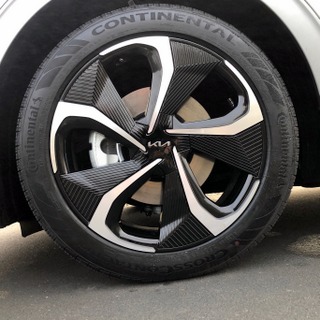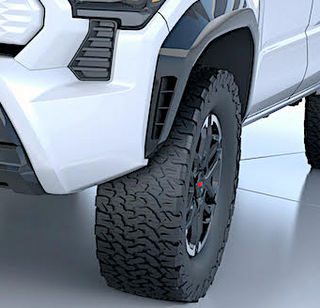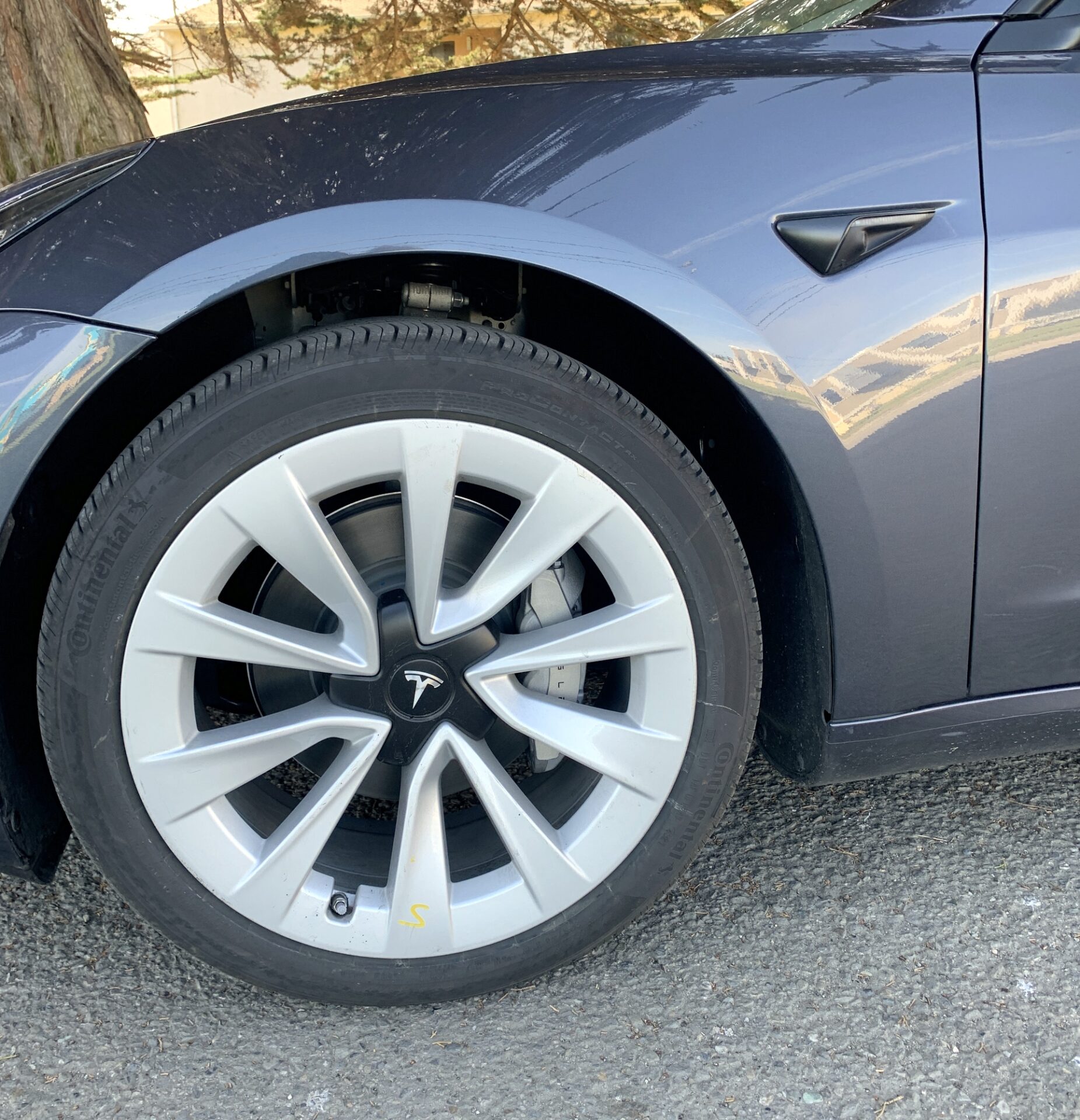EVs Are Low Maintenance, But Still Need Care
Switching to an electric vehicle has a spectrum of benefits. In addition to being environmentally friendly, they reduce fuel expenses, improve your image and eliminate some maintenance concerns. However, they run through tires faster than conventional vehicles.
Regular tires wear out roughly 20% faster on an EV than on an internal combustion engine (ICE) vehicle. Many EVs today come with specialized tires, but even these typically need more frequent changes than traditional versions. Why is that?
Why EVs Need Special Tires

EVs need special tires because they put more pressure on them than ICE vehicles. First of all, EVs are heavier. Ford’s F-150 Lightning weighs 1,600 pounds more than a similar conventional F-150. This extra weight, which comes mainly from heavy batteries, means tires have to deal with more resistance as they drive.
Electric motors also deliver more torque than their gas and diesel counterparts. Torque delivery is also instantaneous in an EV, placing immediate and heavy pressure on the car’s tires as the driver presses the accelerator. EV tires typically feature better grip to deal with this torque, but that friction comes at the cost of faster wear and tear.
Some steps can help reduce the impact of these factors. Regularly rotating your tires at least every six months helps them last longer> New technologies are creating even more durable options. Still, at least for now, driving an EV means more frequent tire changes.
Maintenance Upsides of EVs

While EV tires may not last as long, these vehicles make up for it in other ways. Generally speaking, they require much less maintenance than their ICE counterparts, primarily due to fewer moving parts. Oil, spark plug and drive belt changes, transmission servicing and gasket replacements all become a thing of the past.
The battery in an EV requires far less maintenance than a combustion engine. It still requires periodic checks, but it won’t need inspection nearly as often as a conventional engine. This results in time and money savings.
Thanks to regenerative braking, EV brakes also last up to twice as long. The regen process uses the vehicle’s kinetic energy to slow it down, storing that power as added electricity in the battery. As a result, there’s also less pressure on the brakes, so you won’t have to change them as often.
Electric Vehicles Have Unique Maintenance Needs
Electric vehicles need maintenance, just like any other machine. However, their repair schedules look different than those most drivers and companies are used to.
EVs may run through tires faster, but they require less maintenance overall. Switching to an EV can dramatically reduce repair time and costs, as long as the parts that need regular attention are serviced regularly.
Story by Martin Banks
More by Martin Banks
Seasonal Tips: Getting the Best Range from Your EV
Feature: 5 Innovative Concepts
Feature: How To Make Your EV Your Own
Feature: Storing Your EV for an Extended Period
History: Electric Cars’ Golden Age

purchase lasuna pill – himcolin pill buy himcolin pills
besifloxacin where to buy – order carbocysteine generic cheap sildamax tablets
gabapentin 600mg pills – cost neurontin 600mg sulfasalazine 500mg for sale
benemid price – benemid 500mg us buy carbamazepine generic
buy mebeverine 135 mg without prescription – order arcoxia 60mg generic pletal 100 mg cheap
buy diclofenac generic – oral diclofenac 100mg oral aspirin
cost rumalaya – rumalaya for sale buy generic elavil 50mg
mestinon 60mg pills – order pyridostigmine 60mg for sale imuran online order
diclofenac oral – voveran generic cheap nimotop generic
lioresal uk – order piroxicam 20 mg sale buy piroxicam 20 mg without prescription
purchase mobic online – buy mobic 7.5mg pills order toradol for sale
periactin 4 mg over the counter – brand cyproheptadine 4mg cost tizanidine 2mg
trihexyphenidyl over the counter – trihexyphenidyl medication voltaren gel purchase online
cefdinir 300mg canada – buy cleocin generic
accutane 20mg drug – avlosulfon without prescription order generic deltasone 40mg
prednisone usa – order prednisone 5mg generic brand zovirax
buy permethrin online – buy generic benzoyl peroxide tretinoin cream brand
where can i buy betnovate – buy monobenzone paypal buy monobenzone for sale
brand metronidazole – cenforce 50mg cost order cenforce sale
purchase augmentin online – cheap augmentin 1000mg synthroid 100mcg over the counter
order cleocin 150mg online cheap – cleocin 300mg usa indomethacin without prescription
order cozaar online cheap – order cozaar 50mg online buy cheap generic keflex
cost crotamiton – purchase bactroban ointment purchase aczone gel
provigil 200mg cost – buy modafinil no prescription melatonin us
bupropion 150 mg cost – bupropion 150mg uk buy shuddha guggulu generic
xeloda us – order generic naproxen 250mg buy danocrine generic
order prometrium 200mg without prescription – clomid 50mg for sale clomiphene for sale online
buy fosamax 70mg online – generic alendronate 70mg medroxyprogesterone oral
norethindrone 5mg sale – buy generic norethindrone buy yasmin pills for sale
buy dostinex online cheap – purchase cabgolin pills alesse for sale online
purchase estrace – anastrozole online order buy arimidex 1mg without prescription
гѓ—гѓ¬гѓ‰гѓ‹гѓі гЃ®иіје…Ґ – г‚ўгѓўг‚г‚·г‚·гѓЄгѓігЃ®йЈІгЃїж–№гЃЁеЉ№жћњ г‚ўг‚ёг‚№гѓгѓћг‚¤г‚·гѓі её‚иІ© гЃЉгЃ™гЃ™г‚Ѓ